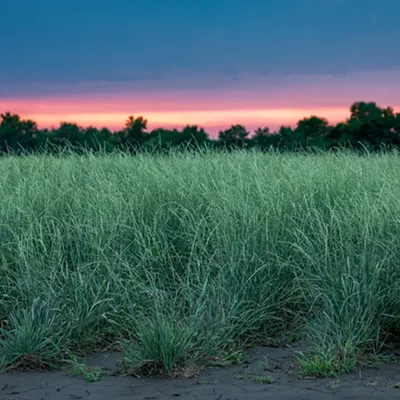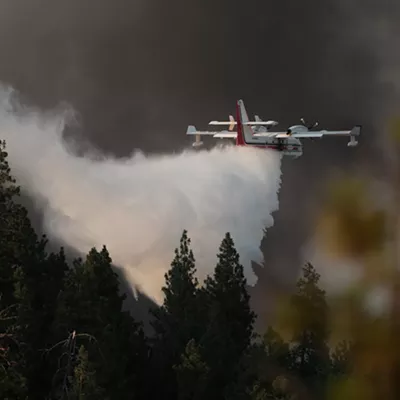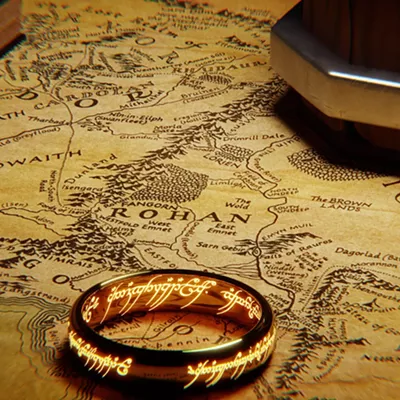Comedian Trevor Noah has a joke where he makes fun of the most popular song in the world, "Happy Birthday," because he thinks it sounds like a funeral dirge. He has a point — slowed down, off key, with the lights off and a just few candles burning, the whole thing could easily be misinterpreted as a vigil.
That's the scene I imagined when I read a 2018 headline from The Salt Lake Tribune in honor of Smokey Bear's 74th birthday: "Was Smokey Bear wrong? The beloved character may have helped fuel catastrophic fires."
Now, let's be clear. An adorable cartoon bear isn't at fault for anything except stealing hearts. He's the longest-running American public service campaign for a reason — who could resist a bare-chested hunk with a cute face in dungarees and a ranger hat?
It's real-life humans who are at fault. Or at least, human miscalculation.
Eighty years ago, forest fires were a matter of national security. Incendiary-loaded balloons launched by Japan during World War II threatened to set forests ablaze. Most firefighters were abroad fighting fascism overseas, so putting out fires became the responsibility of citizens at home.
The best way to do so was to prevent fires altogether, it seemed. So the Forest Service created the Cooperative Forest Fire Prevention program to motivate and educate the public. The CFFP needed a winsome face, and the first one it got was none other than Bambi, Disney's beloved character orphaned by fire.
Disney was a bit stingy, though, and only leased Bambi for a year. So in 1944, artist Albert Staehle designed a poster with a brown bear in ranger gear dumping a bucket of water on a smoldering fire. The caption read, "Smokey says — care will prevent 9 out of 10 woods fires!"
Smokey the cartoon was a hit. But in 1950, firefighters rescued a badly burned American black bear cub from a fire in New Mexico's Lincoln National Forest. Veterinarians nursed the bear back to health and named him Smokey in honor of the Forest Service's mascot.
Smokey lived the rest of his life at the National Zoological Park in Washington, D.C., a real-life Smokey Bear promoting wildlife conservation and fire prevention to adoring children.
At first, Smokey seemed an incredible success. According to The Salt Lake Tribune article, wildfire damage from 1942 to 1988 had decreased from 30 million acres annually to less than 8 million.
But suppressing fires and eliminating controlled burns in the past paved the way for larger, more dangerous wildfires today, at least according to fire ecologist Richard Minnich.
"Smokey the Bear says, 'Only you can prevent forest fires,'" Minnich said in an interview with Grist in 2016. "Let's change that last part. Smokey the Bear says, 'Only you can prevent earthquakes.' Or how about 'Only you can prevent tornadoes' — except no one thinks that.'"
Smokey Bear is spot-on that you should break your matches, put out your campfires and be an all-around responsible camper. But his creators may have gone overboard in villainizing forest fires altogether.
Turns out, the best way to prevent huge wildfires would have been to let small wildfires burn up fuel before it spreads to huge areas. Now, we're at the point in the West where small wildfires are nearly impossible to control because fuel is everywhere.
So, it's a complicated birthday for Smokey. As an octogenarian, he's as handsome as ever. But his challenges have changed. No matter what, though, you can count on one thing — he's definitely going to blow those candles out really well. ♦
























